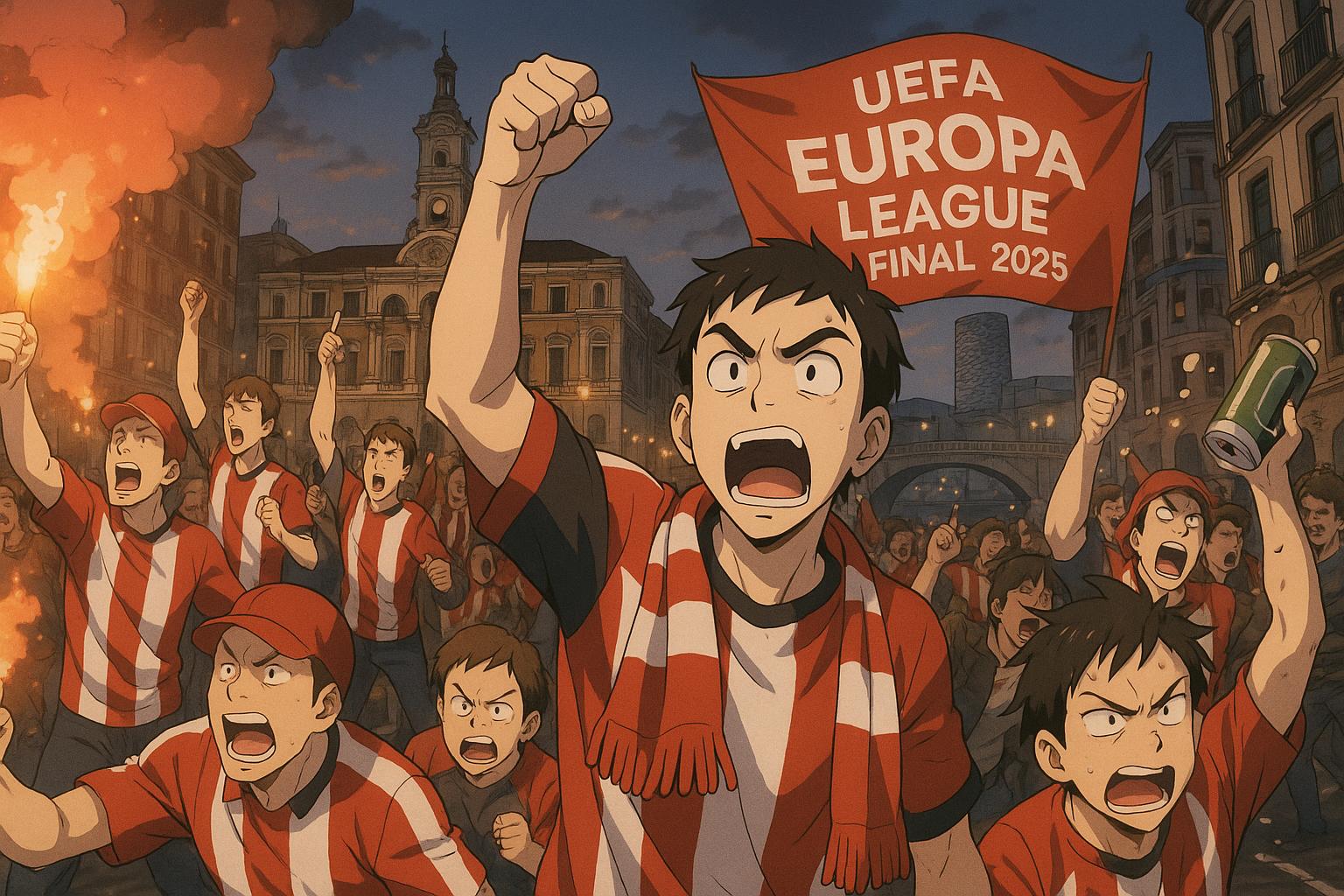In the aftermath of the UEFA Europa League final held on 21 May 2025 in Bilbao, tensions have flared between local residents and British football fans. The match, which saw Tottenham Hotspur defeat Manchester United 1-0, was marred not only by the intensity of the game but also by reports of unruly behaviour from supporters. Images surfaced of fans clambering up traffic signals and engaging in public drinking and urination, prompting outrage among the locals who expressed their disdain online. Many were particularly vocal about the implications of the disorderly conduct on the community, noting that taxpayers would eventually shoulder the burden of any damage incurred.
Social media quickly became the platform for citizens’ frustrations. As one user pointed out, any comparable disturbance linked to events outside football would have typically led to arrests and penalties, yet football seems to afford a disturbing leniency to such conduct. Another observation highlighted the continued impact of such fan behaviour on popular destinations like Benidorm, suggesting that the problem is not isolated to specific events but rather indicative of a broader issue facing popular tourist destinations in Spain.
In the lead-up to the final, acquiring accommodation in Bilbao had already proven challenging, with approximately 97% of available hotels sold out or priced excessively—some charging upwards of £1,300 for just one night. Many fans, eager to support their teams, faced not only logistical challenges but also substantial financial strain, leading to plans for travel adjustments, including indirect flights and regional transport options. Reports indicated that easyJet flights from Manchester and Gatwick saw ticket prices soaring to over £600, highlighting the exploitation that often accompanies major sporting events.
Despite the disruptive behaviour by some fans, it is essential to recognise the overall atmosphere during the final. In Bilbao's vibrant Plaza Nueva, local bars buzzed with celebratory English supporters, as hospitality workers noted that most fans displayed respectful behaviour, cultivating a festive yet harmonious environment. The city managed to showcase its organisational capabilities and cultural embrace amidst the cacophony of footy chants and festive spirits.
However, criticism has also emerged regarding the playing styles demonstrated during the final match itself. Observers lamented the ultra-defensive tactics employed by Tottenham, which, despite ultimately securing the win, detracted from the spectacle. Athletic Club supporters, disappointed by their absence from the final after years of striving, expressed a sense of justice missed in the overall narrative of the event.
The juxtaposition of jubilant celebrations and lapses in decorum encapsulates the complex relationship between local populations and the influx of international fans during pivotal moments in sports. While local communities strive to balance the economic benefits associated with tourism and events like the Europa League, the social ramifications of fan behaviour demand ongoing consideration and dialogue.
As this latest episode unfolds, it reinforces the vital importance of recognising the impact of sports on community dynamics—both positive and negative. The hope remains that future events will foster respect and celebration without allowing the darker aspects of fan culture to overshadow the joy that football can bring.
Reference Map:
- Paragraph 1 – [1], [2]
- Paragraph 2 – [1], [5]
- Paragraph 3 – [2], [3]
- Paragraph 4 – [4], [6]
- Paragraph 5 – [7]
Source: Noah Wire Services
